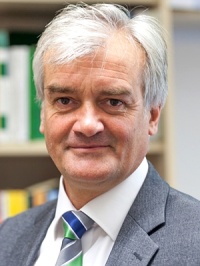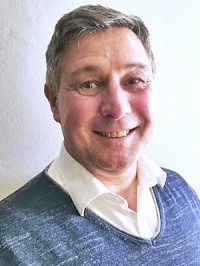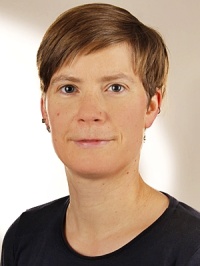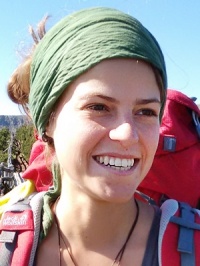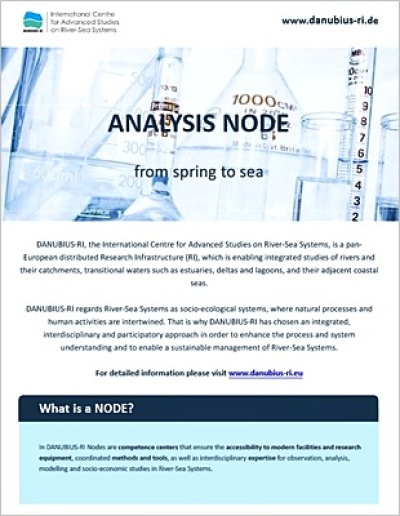The Analysis Node is coordinating the efforts within DANUBIUS-RI regarding innovative, interoperable and customized sampling and analysis. The expertise and facilities bundled within the Analysis Node allow to develop and test sampling strategies and analysis methods for River-Sea Systems.
Overview
- Coordination: Technische Universität Dresden, Institute of Urban and Industrial Water Management, Institute of Hydraulic Engineering and Hydromechanics, Center for Advanced Water Research (CAWR)
- Cooperations: Terrestrial Environmental Observatories (TERENO), Modular Observation Solutions for Earth Systems (MOSES), Urban Observatory Dresden, Long-Term Ecological Research (LTER)
Challenges
- Obtain a maximum of information with limited resources: develop fit-for-purpose measurement concepts for River-Sea Systems, which efficiently and economically provide high resolution data in time and space by combining long-term monitoring, event-based measurements and laboratory experiments;
- Provide an interdisciplinary overview of the state of surface waters;
- Identify critical states and analyse trends regarding gradients of pollutants and pollutant clusters;
- Generate data for scenario-based modelling regarding the development of pollutant inputs and water quality, as well as for assessing the efficiency of measures using compound flux modelling (in cooperation with Modelling Node);
- Untangle long-term trends and event-based effects in surface waters by conducting event-based measurements as well as long-term monitoring campaigns;
- Identity and quantify emerging pollutants;
- Quantify degradation rates of pollutants by developing boat-based online sensoring methods which enable continuous measurements along rivers (lagrangian approach);
- Identify the sources of particle-associated pollutants by innovative fingerprinting methods.
Research Priorities
- develop innovative sampling, analysis and measurement methods and concepts for River-Sea Systems;
- integrate all relevant disciplines for a system-oriented assessment of the state of River-Sea Systems, such as hydrology, geomorphology, chemistry, ecology, biology, ecotoxicology and hygiene;
- assess the value of information obtained from given data sets as a function of their temporal resolution;
- assess the value of information of high frequency measurements from online measurements of indicator substances;
- develop a sampling strategy by combining stationary sampling with lagrangian sampling in order to enhance information density;
- develop a coordinated sampling strategy and customised sampling protocols for all involved disciplines.
Services
Step by step, the Analysis Node will complement already existing facilities and activities, as well as data and information systems in order to be able to fully implement the planned functions and services. In general, services can be offered in the entire range of topics of the surface water relevant core disciplines. The following categories of services can be accessed:
- provide access to field and laboratory equipment as well as research platforms: analysis of trace elements, boat-based lagrangrian measurements, ecotoxicological effect-directed analysis, continuous long-term measurements in urban streams, facilities and equipment within the urban observatory Dresden and the test site upper Elbe;
- provide expertise regarding sampling, measurements and analysis of samples from River-Sea Systems: catalogue of methods and recommendations for sampling strategies and concepts;
- integrate and provide access to data, which is already existing regarding e.g. water quality, micropollutants, pathogens and heavy metals, as well as integrate the upcoming data from the DANUBIUS-RI community;
- provide expert support regarding sampling and analysis for ship campaigns, as well as for modelling (e.g. hydrology, compound transport, water quality), collaborate in measurement programs and sampling campaigns;
- provide training regarding sampling and analysis of samples from River-Sea Systems: organise workshops and conferences, develop training concepts and possibilities of training for guest researchers, e.g. through joint projects and theses.

